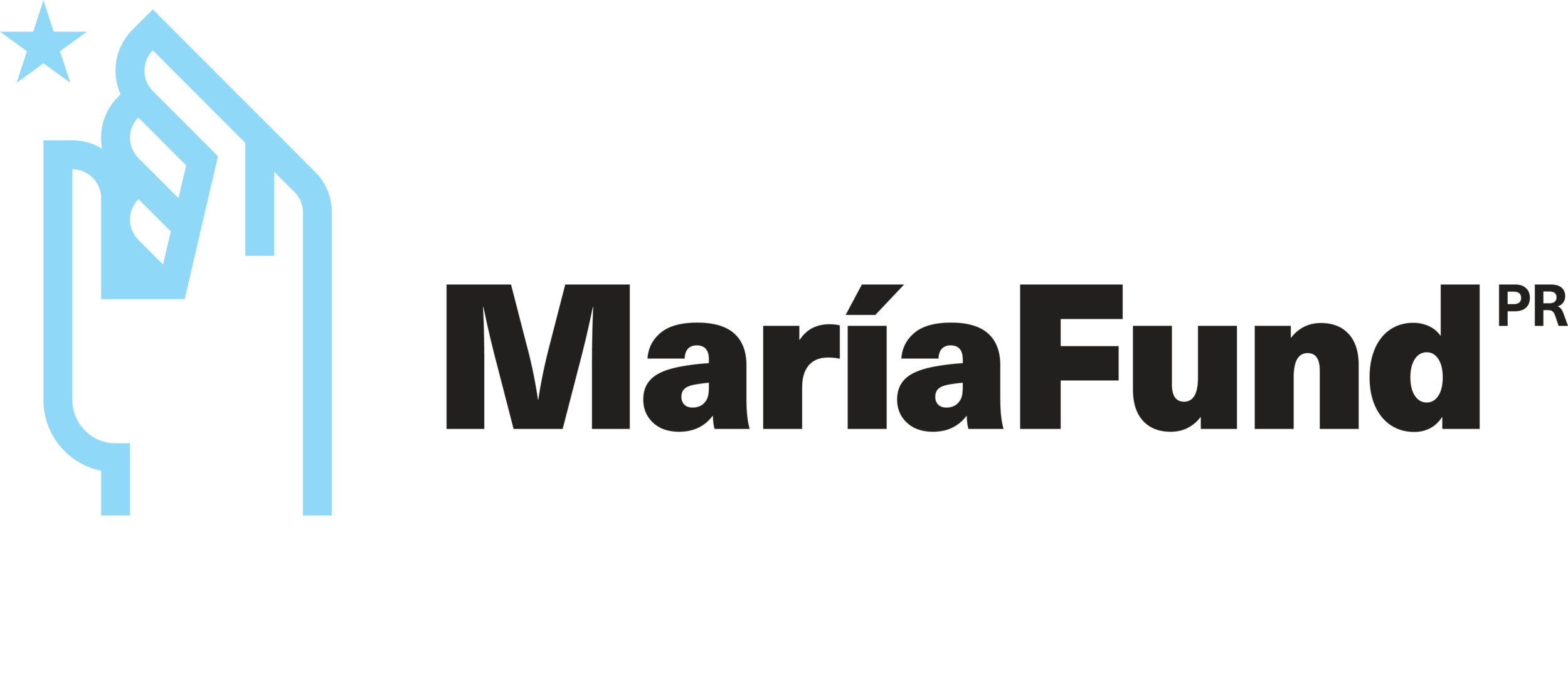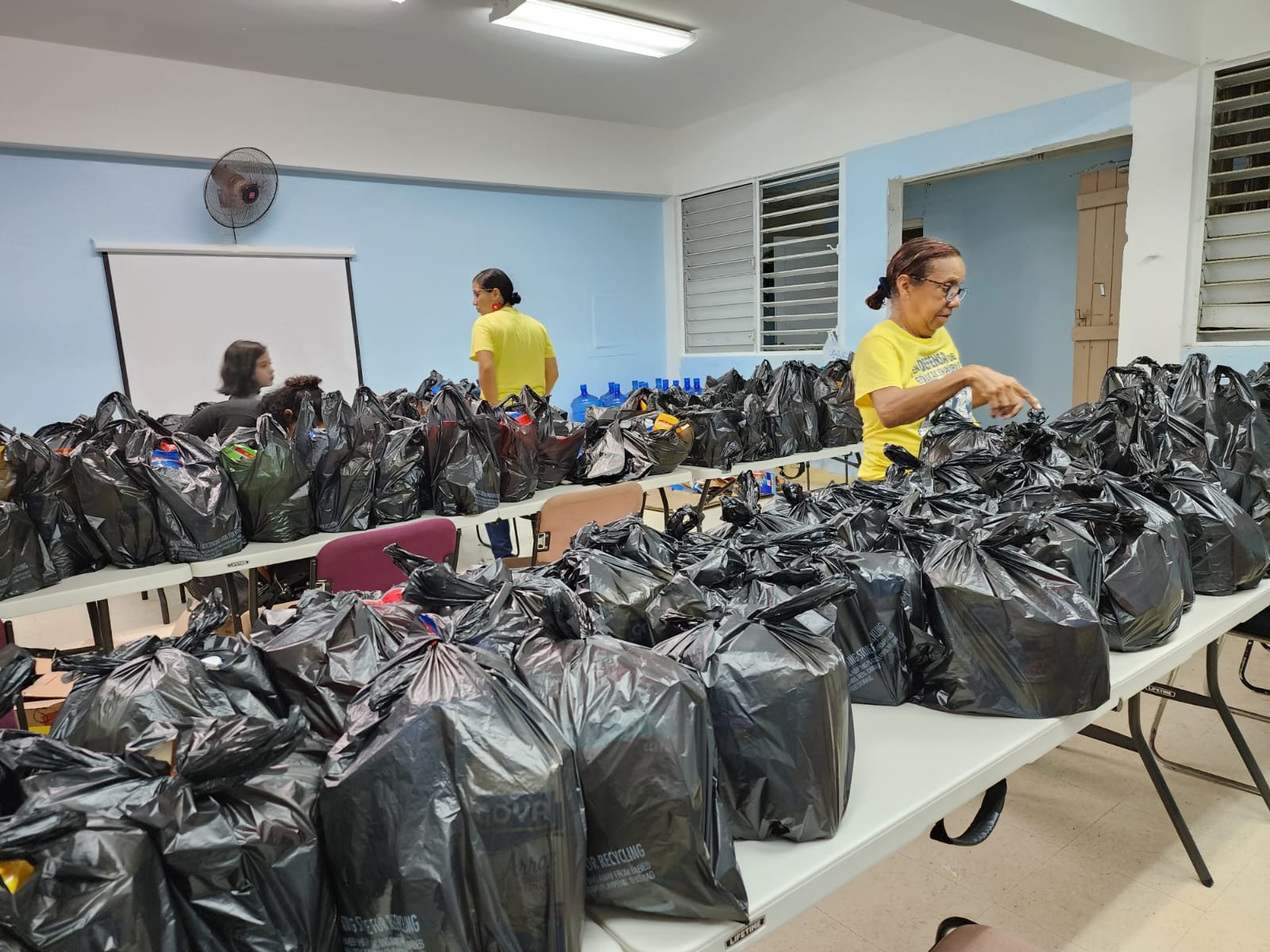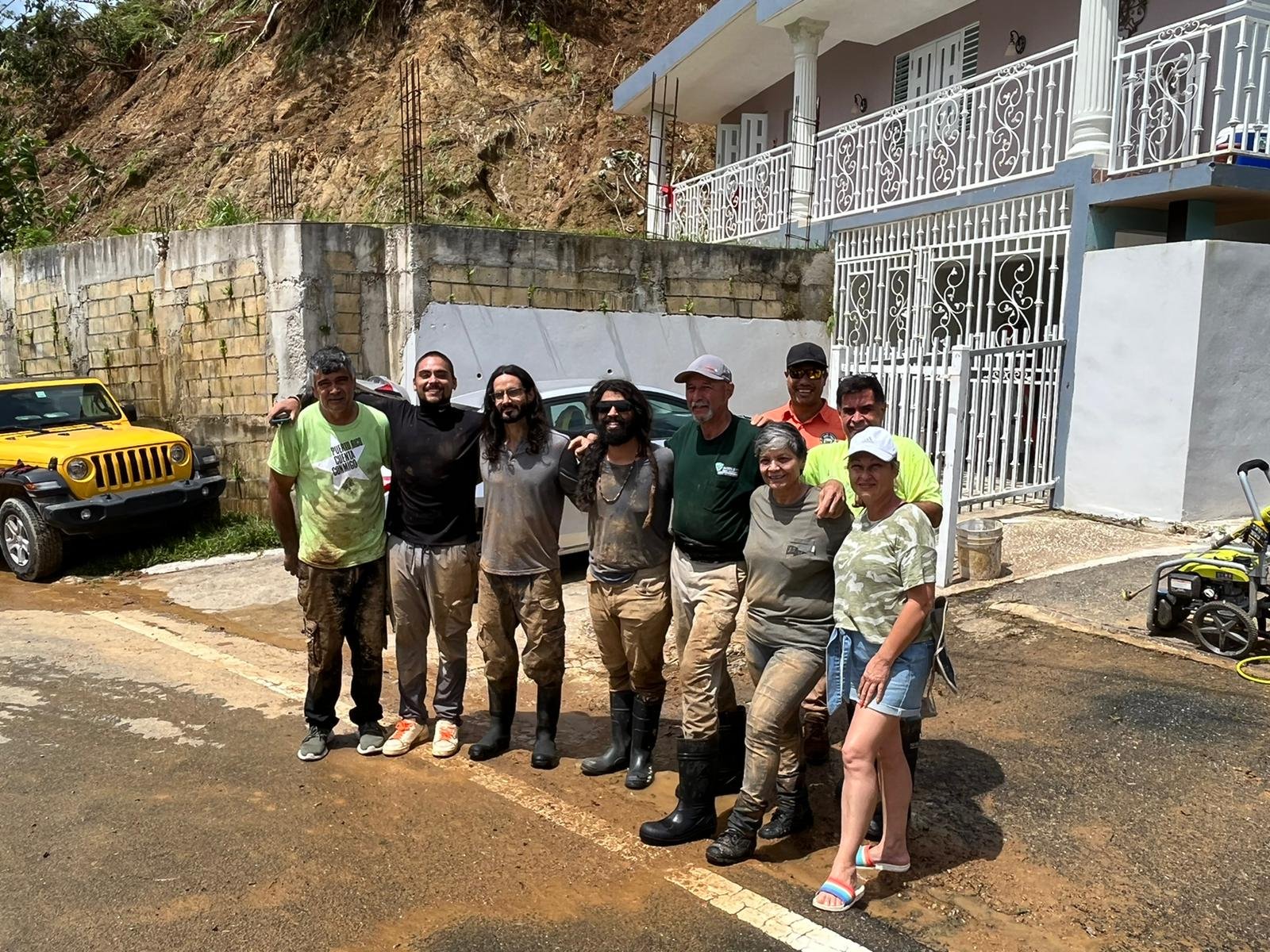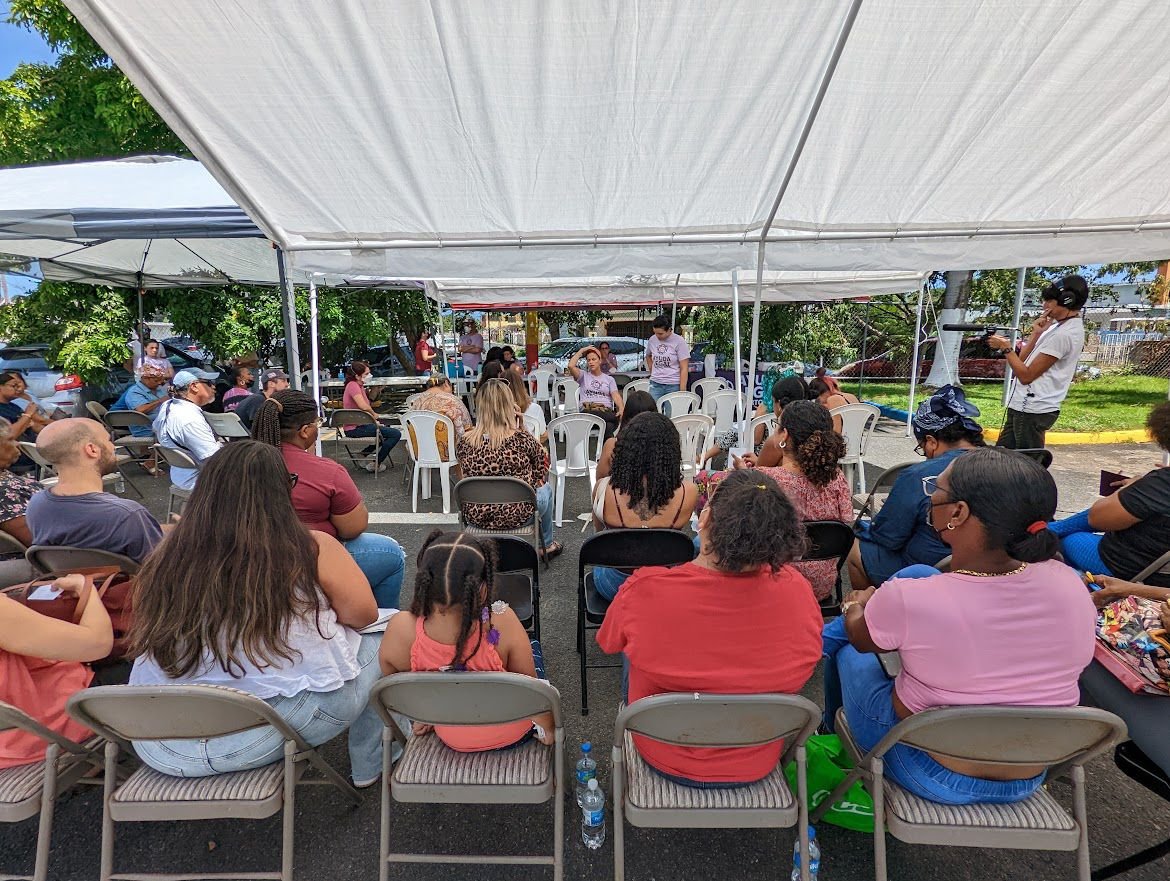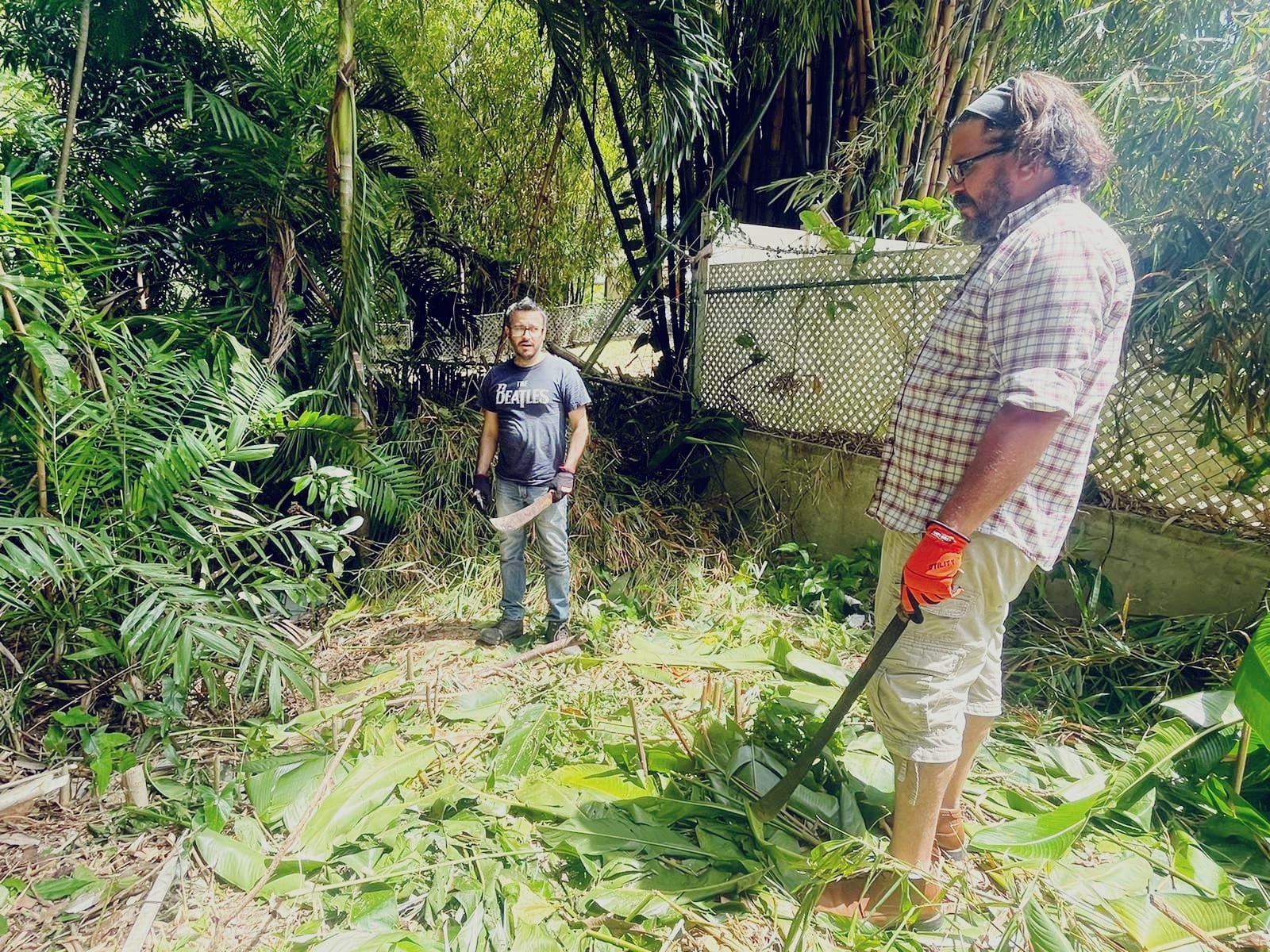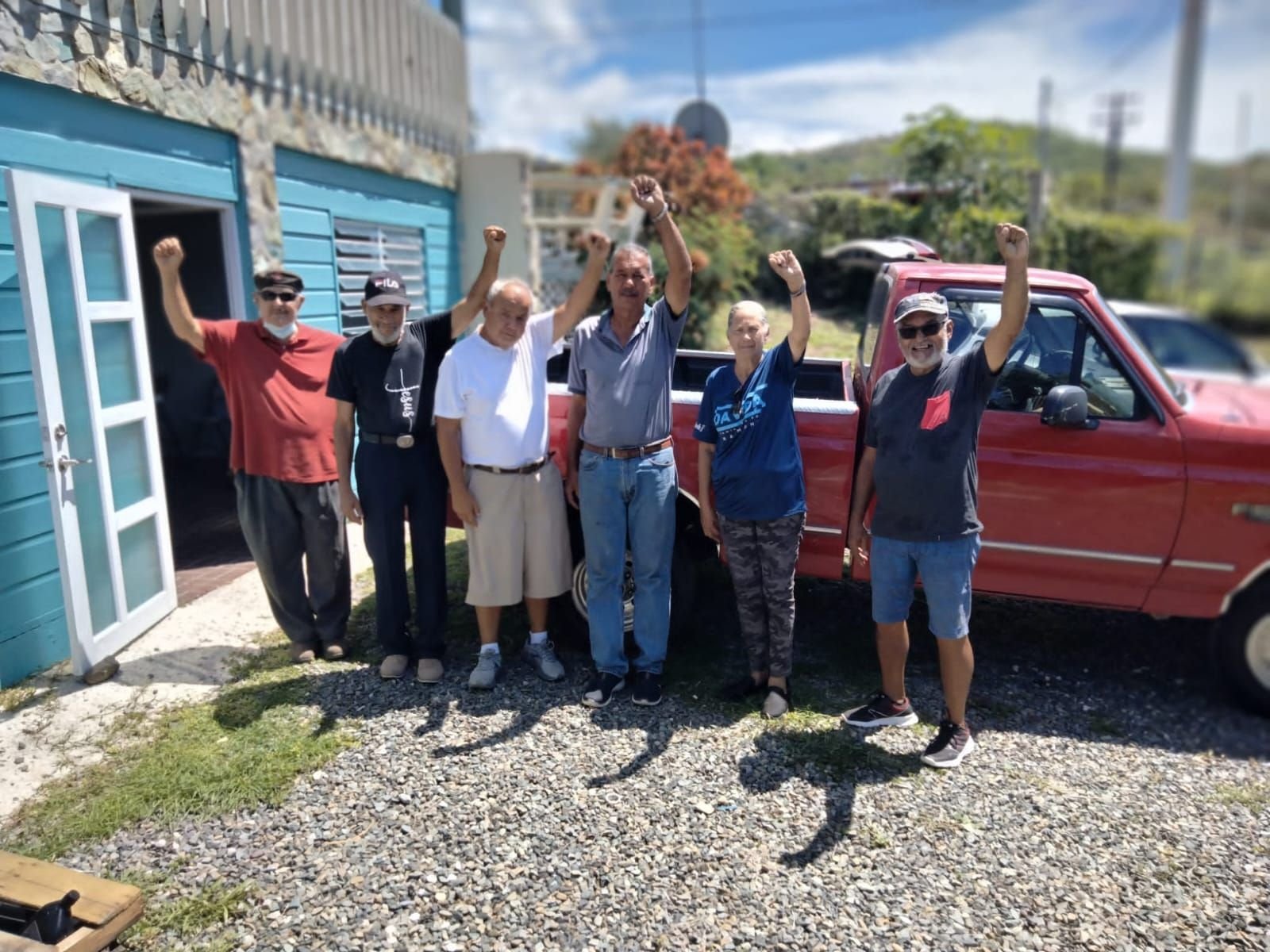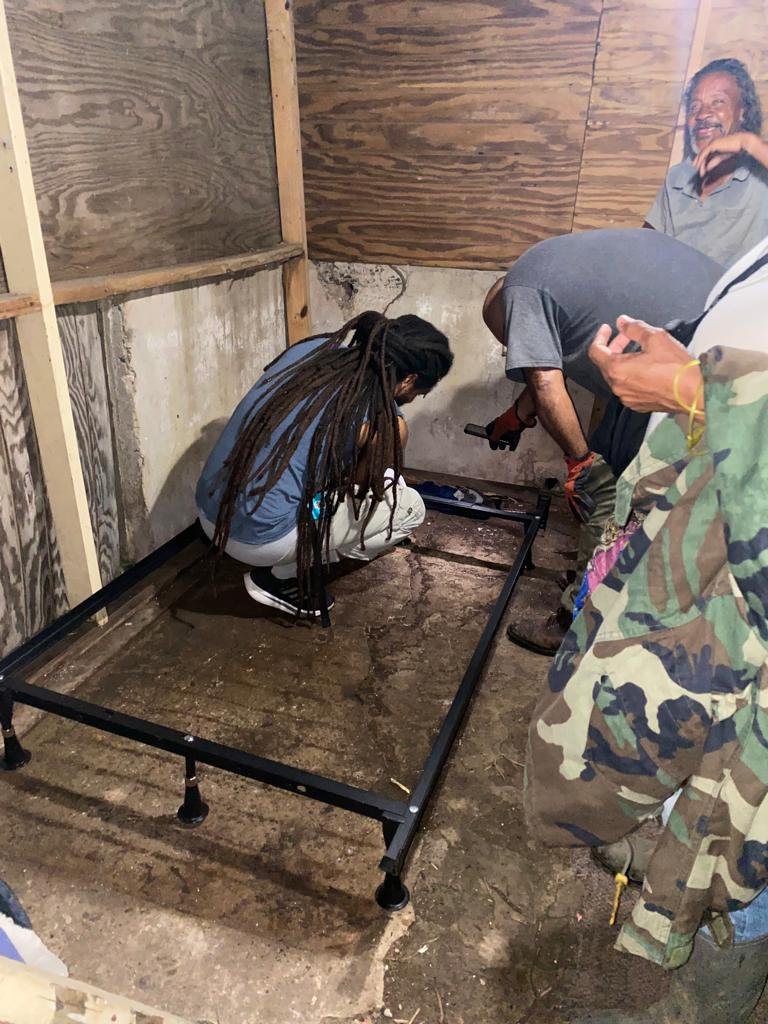Rapid response in the aftermath of hurricane Fiona
Five years after Hurricane Maria passed through Puerto Rico, Hurricane Fiona has made what we know even more evident: the country has a weak and incompetent infrastructure, added to this is millions in unused recovery funds, thanks to a system which is unequal by design due to the colonial relationship with the United States. Social justice and struggle organizations have decided to resume a rapid response role.
Fiona Community Response Stastement:
The country we deserve is possible
We demand it and we are building it every day
December 5, 2022
San Juan, Puerto Rico: In the country we deserve, the people who provide us with local, healthy food would have protections after an emergency. We would work together to achieve energy stability and to have renewable energy. Vulnerable people would have support networks for their physical and emotional health. There would be public policies in place to protect our income in the midst of a crisis. We would enjoy an infrastructure that is adapted to the climate of the Caribbean.
Today, however, we are one more of the world’s island nations from which the extractive economy (based on fossil fuels and the principles of capitalism) takes away the real possibilities of adequately facing climate change. Our archipelago is one of many on the planet facing displacement and looting in different forms, yet we don’t have a voice in international forums of political discussion.
But the country we deserve is possible. We have experienced many of these ways of being a country in recent months with the immediate response of the Fiona Community Response Fund: María Fund, HASER, Institute for Agroecology, Taller Salud, Ayuda Legal Puerto Rico, AgitArte, the Puerto Rico Teachers Federation, étnica magazine and Casa Tallaboeña.
With more than $1.5 million distributed collaboratively, the nine organizations in this alliance provided support throughout Puerto Rico: from water and electric generators, to food, money, legal guidance, and construction equipment. These solidarity experiences lived since September 18 tell us two things: that the disaster is political and that a just recovery is feasible.
The disaster is a political one
Our communities are crushed by the collapse of public governance that favors larger economic interests. In addition to hurricanes Fiona and María, we live through the disaster left by decades of colonialism, the Fiscal Control Board, the pandemic, the earthquakes.
The same people who suffered the lack of services remain excluded from aid, due to bureaucratic processes and other forms of systemic oppression: racism, institutional abuse, lack of participation. That is the real disaster.
Fiona has come and gone, and the partial blackouts continue. We don't see LUMA/QUANTA/ATCO having a coherent plan to meet our energy needs. The fragility of the electrical system worsens despite the $750 million granted to the company for its administration.
When the local government continues to fail to prioritize a sustainable energy future for our people, the issue becomes a human rights issue: rural communities have no water without energized pump systems. Perishable foods expire, so food is missing. The health of people with chronic conditions worsens if medical equipment does not work... not to mention the impact on other services, such as public education.
On the other hand, the result of the cabotage law on our ability to recover is evident when we cannot manage adequate supplies of fuel. Meanwhile, the Fiscal Control Board pushes austerity policies to settle a government debt that has not been audited.
But history tells us that privatization is not a solution to politicization and corruption. Let's remember Whitefish and Cobra. We could also talk about the privatization of public housing and the health system: these policies fell short in guaranteeing the availability of essential services. Time has shown the value of basic services being managed from the public sphere, aligned with real needs.
A just recovery is possible
The experience of these months points to the value of collaboration and participation. Therefore, we insist on recovery, mitigation and planning processes designed with and for the people, which take into account factors such as climate change and the aging of the population.
We are in time to design a public energy system, aimed at renewable energy, with adequate governance that prevents corruption. The public administration of essential services does not have to be doomed to inefficiency.
We acknowledge the role of communities in building that just recovery. Let us remember that after Hurricane Fiona, the complaints of grassroots organizations achieved the modification of the FEMA impact maps, the inclusion of municipalities originally ruled out, and the flexibility of the ownership criteria for FEMA aid funds.
This is why we are committed to achieving a just recovery. As an alliance, we will continue to share the learnings of collective work. As social justice organizations, we will continue denouncing and acting to strengthen the networks that make us a community and to bet on the Puerto Rico that we deserve.
About the Fiona Community Response Fund: On September 19, 2022, nine social justice organizations launched the Fiona Community Response Fund to raise funds to provide immediate response to the individuals and communities of which they are a part. As of November 30, the works in the first phase were completed, and the fund had mobilized $1.5 million to their communities, to support social justice organizations efforts that create and maintain a just and equitable society that aims at ending systemic violence. They recognize that the legacy of past injustices remains in our society and promote efforts to empower individual and community action in support of restorative justice and the implementation of human and civil rights. For details on the Fiona Community Response Fund visit fionaresponse.org
María Fund supports trans and non binary leaders in the aftermath of Hurricane Fiona in Puerto Rico
*Explanatory note:
From the María Fund team, it is important for us to clarify that the decisions related to the support provided to the 55 trans and non-binary leaders after the passage of Hurricane Fiona, were made internally by the María Fund team. Karina Torres, one of the leaders of the committee of SylC Initiative, is not and has not been responsible for the selection of the leaders in this effort.
Unlike the ordinary process, in which the SylC Initiative committee decides on the allocations, since it is an emergency fund with a need for greater agility, the process was handled quickly and from the direction of the organization.
The redistribution of resources in times of emergencies -such as when a hurricane passes- is a complementary strategy to the mobilization of resources that the María Fund organization leads annually. We identified trans and non-binary leaders connected to groups that we currently support from the María Fund that were being evaluated.
We took it upon ourselves to make this happen when most people in Puerto Rico had no electricity, many were without water, and organizing support for their families and friends, including supported leaders.
-Xiomara P. Caro Díaz, Executive Director, María Fund PR-
Any doubt or question should be directed to info@mariafund.org
October 27, 2022
San Juan, PR - María Fund, an organization that supports social justice movements in Puerto Rico, is mobilizing $165,000 in the wake of Hurricane Fiona to support 55 trans & non-binary leaders of projects and groups based in the island. With this support, María Fund acknowledges the dire conditions these groups and communities live in after natural disasters. The selection was based on ongoing relationships with groups and organizations participating in María Fund’s general grants program and grantees supported through the Sylvia and Christina (SylC) initiative, aimed at fundraising and redistributing support in a participatory manner annually.
For this rapid response effort, María Fund staff established a partnership with another entity in the US - Trans Justice Funding Project - for technical support in the redistribution, needing to add capacity through solidarity in the face of the emergency that Puerto Rico was experiencing.
“As we have done in previous disasters, we used different resource mobilization strategies to fulfill our mission as a social justice organization. We identified unrestricted resources and allocated them to support the leadership of trans & non binary-led projects and groups in Puerto Rico that work from their spaces in resistance to patriarchy and colonialism. We know that in moments like these they move to mutual-aid support with and for their community”, said Xiomara Caro, Director of the María Fund.
This effort comes after the Maria Fund launched the SylC initiative last year, a transfeminist and participatory grantmaking fund that seeks to support the work and dreams of groups led by trans and non binary people in the archipelago of Borikén (Puerto Rico). During the 2021-2022 period, 10 groups received support and resources as part of this effort.
María Fund's commitment is to strengthen a powerful and aligned movement of social justice leaders, organizations and initiatives that are building the power of the people of Puerto Rico to advance their work for justice, equality and liberation. María Fund - which began its work after Hurricane María moving support to a variety of social justice groups - has evolved to make visible and support initiatives such as SylC, focused on communities that have been historically marginalized, and who lead their own movements and organizing processes of liberation.
Five years after Hurricane Maria, organizations fighting for social justice in Puerto Rico denounce a political disaster
Published on press on Septiembre 21, 2022
September 21, 2022, San Juan, PR– Five years since Hurricane Maria pounded Puerto Rico, Hurricane Fiona has brought to the limelight what was already evident for many: the country’s weak and deficient infrastructure, millions in unused recovery funds, and a system that is unequal by design due to Puerto Rico’s colonial relationship with the United States.
The creation of the Fiscal Oversight Board in 2016, and how it has hindered recovery, facilitated the criminal arrival of LUMA Energy and the poor response of the local government to a Category 1 Hurricane, showcasing that instead of a natural, this is a political disaster that demands structural changes.
In lieu of this reality, organizations fighting for social justice in the archipelago have decided to assume a responsive role, considering the urgency that people are experiencing in their respective communities as well as the limited role they can play given the magnitude of the disaster. Maria Fund, Taller Salud, HASER, the Puerto Rico Teachers Federation, Rico, Agitarte, Revista étnica, Puerto Rico Legal Aid, Casa Tallaboeña and the Puerto Rico Agroecological Institute launched the Fiona Community Response Fund last Monday, September 19, 2022, to raise funds in the United States and the international community to provide a response to the local communities and residents they serve.
“We could’ve been better prepared after Maria. It is our duty to denounce that, not only are they responsible for not being prepared, but that they actually CREATED the conditions for a Category 1 hurricane to devastate us. They tied our hands so we couldn’t recover appropriately... and now, they hinder our recovery by saying that we have no needs,” said Tania Rosario, Taller Salud’s director. Taller Salud is located in Loíza, a town in the northeastern region of Puerto Rico where there are still isolated, flooded communities from Fiona’s rain.
After four days since Fiona hit Borikén’s archipelago, there are still communities under water, the vast majority of the residents have no power or drinking water service. Communications networks have been compromised, along with bridges, roads in dangerous conditions and a collapsed healthcare system, with hospitals unable to keep ongoing electricity and air conditioning. “The government insists on minimizing the crisis that working people are experiencing, including teachers in Puerto Rico. They take advantage of these natural disasters to fill their pockets and advance their political careers. Governor Pedro Pierluisi’s expressions are concerning to us in a very personal way. When the Governor says that "humanitarian aid is not needed, because there are no logistics in place to receive it", he reaffirms that, five years after Hurricane Maria and with a projected highly active hurricane season, the government did not bother to put in place an appropriate strategy to process upcoming aid and resources. This government just responds and doesn’t plan ahead; it’s a government that lets us die time after time. A government that does not assume their responsibility with the people they were elected to serve,” said Mercedes Martínez, president of the Puerto Rico Teachers Federation.
“Five years after Hurricane María and here we are again, assuming their responsibility and building bridges of solidarity,” said Xiomara P. Caro Díaz, executive director of María Fund Puerto Rico. “There is an urgent need to save lives, and these are trusted and vetted organizations that in recent years have responded to multiple disasters, and at the same time have visibilized the urgent need for structural changes. We call on the community in the US and internationally to donate to www.fionaresponse.org, to help the people of Puerto Rico.
